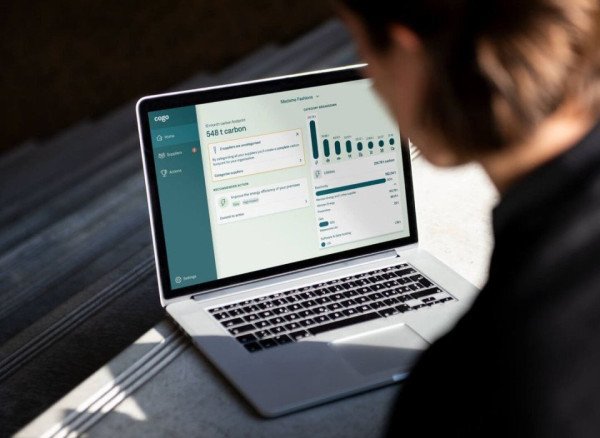Discover our nationwide festival for tech that's good for the world.
Cogo — simplifying the low carbon economy
5 December 2023

Cogo’s carbon footprint management software is empowering individuals and businesses globally to take positive climate action.
In the low carbon economy, reaching gigacorn status would be the pinnacle of success. To be a gigacorn, an organisation needs to strike a balance between commercial prosperity and annually removing or mitigating one gigaton of CO2 emissions. Nobody’s reached gigacorn status yet, but this is Cogo’s mission.
Cogo’s carbon footprint management software combines credible carbon emission data with behavioural science techniques. Their tools, paired with a team of world-leading carbon footprint and financial data experts, help individuals and businesses measure, understand and reduce their impact on the climate.

Headquartered in Wellington, New Zealand, Cogo was founded by Ben Gleisner in 2010 with the mission of combating climate change by understanding and therefore positively influencing consumer spending. Cogo recognises that impactful climate action is a collective effort that’s enabled through improving data comprehension and providing simple mitigation guidance.
Cogo’s data collection efforts are agile, with their tech simplifying footprint calculation by tracking carbon emissions in real time. Working with leading carbon experts such as Professor Mike Berners-Lee, Cogo collates country-specific emissions data to build carbon models using ‘spend-based’ data, which is information collected through mapping bank and credit card transactions. Pairing this data with nudge theory efforts – in this case, making it easy to take climate actions that result in a reduction in the user’s footprint – Cogo’s carbon footprint management software is encouraging actionable efforts at scale.
Cogo’s core customers are financial institutions with millions of users. It has partnered with more than 20 of the world’s largest financial institutions to date, offering the ability to integrate carbon-tracking functionality into their apps. This incentivises carbon-conscious consumer spending by enabling customers to see how much carbon is associated with each purchase they make; and‘nudging’ carbon-reducing decision-making.

Small businesses can also benefit, by plugging Cogo’s carbon footprint management software into Xero, helping them calculate their carbon emissions while taking care of accounting.
Furthermore, Cogo also helps corporates to mitigate their Scope 3 emissions by encouraging their SME suppliers to use Cogo’s carbon tracking tools. Reporting Scope 3 emissions – that is, emissions that aren’t produced by the corporate directly, but happen in their supply chain – will be mandatory for large corporates in New Zealand in 2024, so Cogo’s Scope 3 emissions report tool helps corporates get their compliance up to scratch in a ‘hard-to-reach’ part of their supply chains.
By providing consumers and businesses with tools that make carbon tracking easy, Cogo is helping people take accountability for the choices they make, and therefore the emissions they produce.
The popularity of Cogo’s tech is apparent in that customers of banks using Cogo are more likely to recommend their bank to family and friends. This highlights that Cogo’s tech is both good for the planet and business - so perhaps it will be the perfect recipe for the gigacorn tick.
Subscribe to the Techweek newsletter for updates straight to your inbox:
Recent news
Selling business solutions to Malaysia's ICT sector
29 Apr 2024
This article was originally posted by myNZTE.
What do tech buyers in Singapore want?
29 Apr 2024
This article was originally posted by myNZTE. Companies in Singapore don't tend to know much about New Zealand's tech offerings, but they are open to them.



